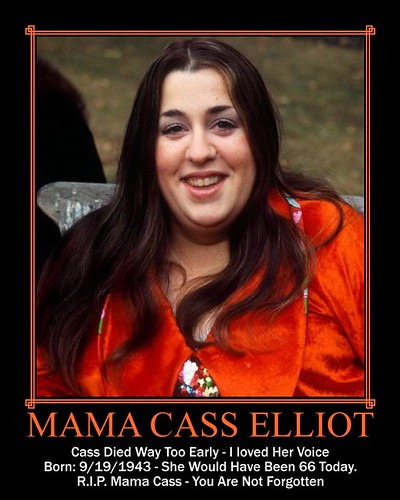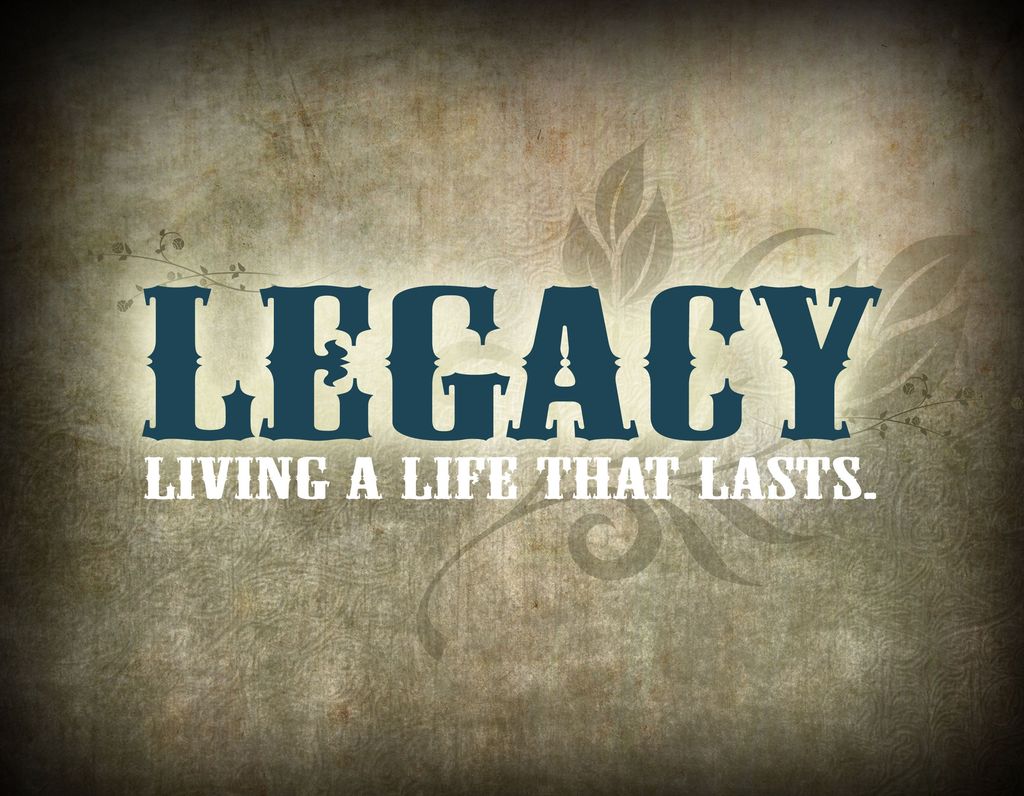The sudden, tragic passing of “Mama” Cass Elliot on July 29, 1974, sent shockwaves through the music world, leaving behind a void that resonated far beyond the harmonies of The Mamas and the Papas. Yet, in the immediate aftermath of her death, a grotesque and utterly false rumor took root, twisting the narrative of a vibrant artist’s final moments into a cruel caricature: that she had choked on a ham sandwich. This sensational untruth, swiftly picked up by a hungry press, overshadowed the genuine heartbreak and the complex story of a woman who was, in her final days, finding a new kind of triumph.
Today, nearly five decades later, the shadow of that absurd culinary myth still occasionally looms, a testament to the speed with which misinformation can calcify into legend. But the true story of Cass Elliot’s death is far more poignant and, frankly, more tragic, intertwining her lifelong battle with body image, the pressures of an iconic persona, and a relentless drive to redefine herself as an artist. It’s a narrative that delves beneath the surface of the “Big Mama” image, revealing the immense talent, vulnerability, and unwavering spirit of Ellen Naomi Cohen, the woman who soared to stardom and fought fiercely for her authentic self.
This in-depth exploration seeks to peel back the layers of myth and misunderstanding, illuminating the path Cass Elliot forged from her Baltimore beginnings to her final, triumphant London performances. We will examine the pivotal moments in her life and career that shaped her journey, the internal and external battles she faced, and the ultimate, sorrowful truth behind the headlines that once cruelly defined her departure from this world. Her story is one of an extraordinary voice, an indomitable will, and a life tragically cut short just as she felt she had truly arrived.

1. Ellen Naomi Cohen: The Formative Years and Early Aspirations
Born Ellen Naomi Cohen on September 19, 1941, in Baltimore, Maryland, Cass Elliot’s early life was steeped in a rich, if sometimes financially strained, musical environment. Her mother was a trained nurse and a professional singer, while her father was deeply devoted to opera. This household, filled with melodies and operatic drama, undoubtedly laid the groundwork for the powerful vocal talent that would later captivate millions, even as her family navigated periods of significant financial stress and uncertainty.
Despite this early exposure to music, Elliot’s initial ambitions veered towards the stage, with a dream of becoming an actress. She pursued this during her time at American University, participating in summer stock productions and even winning a small part in a play called *The Boy Friend*. It was this theatrical inclination that first drew her to New York City, a determined young woman leaving high school shortly before graduation to chase the bright lights of an acting career. However, fate, or perhaps her undeniable vocal prowess, had other plans.
It was during these early years, while working odd jobs and frequenting the burgeoning folk music scene in places like Washington D.C. and Greenwich Village, that Elliot began singing with local bands. This passion, once a secondary pursuit, began to take precedence, especially after she fell for Denny Doherty. She teamed with others in groups like The Triumvirate, then The Big 3, and later The Mugwumps, slowly but surely carving out her place in the vibrant folk landscape, her voice already beginning to turn heads and hearts.

2. The Genesis of a Legend: Joining The Mamas & The Papas
The path to forming The Mamas and the Papas was, in many ways, an intricate dance of talent, ambition, and personal connections. After The Mugwumps dissolved, Denny Doherty found himself collaborating with John Phillips and his wife, Michelle Gilliam, forming The New Journeymen. Cass Elliot, having followed Doherty around town, taking waitress jobs in nightclubs just to be near them and rehearse, was convinced she belonged with this burgeoning group. Her persistence was legendary, and her belief in their collective dynamic unwavering.
Initially, John Phillips harbored reservations about bringing Elliot into the fold, partly due to her weight, an insecurity Cass herself grappled with. However, a pivotal moment arrived during a vacation in the Virgin Islands. It was there, amidst the tropical backdrop, that Doherty persuaded Phillips that Elliot’s voice was indispensable. A popular, though possibly embellished, legend from this period suggests her vocal range mysteriously increased by three notes after she was hit on the head by a falling pipe at a construction site – a story Elliot herself confirmed to *Rolling Stone*, adding a quirky, almost mythical layer to her already blossoming talent.
Regardless of the pipe’s alleged magical properties, it was the raw, undeniable chemistry that solidified their union. An LSD trip in the winter of 1964, described as a moment of profound bonding, saw the foursome singing together for hours. The dynamic was too potent to ignore. With two female members, The New Journeymen needed a new identity. It was Cass herself, inspired by a Hells Angels segment on the Carson show where the bikers referred to their women as “Mamas,” who declared, “Yeah! I want to be a Mama.” And thus, The Mamas & The Papas were born, a name that perfectly captured the communal, slightly rebellious spirit of their burgeoning sound.

3. The Voice that Defined a Generation: “California Dreamin'” and Stardom
With their new name and an undeniable blend of harmonies, The Mamas & The Papas rapidly ascended to the pinnacle of the 1960s music scene. Their debut hit, “California Dreamin’,” released in 1965, beautifully encapsulated the yearning and optimism of their generation, propelling them to overnight success. Cass Elliot’s powerful, distinctive voice was not merely a component but a defining characteristic of their sound, a rich, resonant instrument that imbued their folk-rock anthems with an unforgettable emotional depth.
Beyond the immediate success of “California Dreamin'” and other massive hits like “Monday, Monday” and “Words of Love,” Cass’s vocal artistry truly shone on her solo feature, “Dream a Little Dream of Me.” Recorded by the group in 1968, this track, credited as “Featuring Mama Cass with the Mamas and the Papas,” offered a contemplative and soulful rendition of the 1931 standard. Her interpretation was strikingly different from earlier, more up-tempo versions, showcasing her ability to transform a familiar tune into something deeply personal and profoundly moving, cementing her status as a singular vocal talent.
The group’s success was meteoric, a phenomenon of soft rock rising out of the folk music era, with their music capturing the public’s ear and holding tight. They would release four lauded albums by 1968, crafting a sound that was both innovative and timeless. Cass Elliot’s contribution was consistently described as central to this triumph, her charisma and vocal prowess making her, arguably, the member with the longest impact on popular culture.

4. The ‘Big Mama’ Image: A Golden Cage of Stardom
As Cass Elliot’s star ascended with The Mamas & The Papas, so too did a public persona that, while adored by many, became an increasingly heavy burden for her: “Mama Cass.” This “Big Mama” image, characterized by her robust figure and jovial disposition, was bestowed upon her by the public, not created by her. While it became an inextricable part of her identity in the eyes of fans, it was a label she reportedly disliked, feeling trapped by its confines and the way it seemed to overshadow her multifaceted talent and independent spirit.
The context reveals her own feelings on the matter, as she stated in her final interview, “I never created the Big Mama image. The public does it for you.” She openly acknowledged her weight, saying, “I’ve been fat since I was seven… but luckily I was bright with it; I had an IQ of 165.” This quote underscores her intelligence and self-awareness, suggesting a woman who, despite societal pressures, found strength in her intellect and individuality, even as the public reduced her to a physical stereotype.
This token “Big Mama” persona, as she perceived it, began to feel like a stage prop, limiting her artistic expression and her ability to be seen as a serious, evolving artist. It was a golden cage of stardom, offering immense fame and adoration, but at the cost of her authentic self. This internal struggle fueled her desire to break free, to abandon the image, and to embark on a solo career where her talent, rather than her physique, would be the sole focus, a defiant rally cry embodied in her later work, “Don’t Call Me Mama Anymore.”

5. Tumultuous Relationships and the Band’s Demise
Beneath the harmonious facade of The Mamas & The Papas lay a turbulent web of personal relationships, affairs, and heartbreaks that ultimately contributed to the group’s eventual dissolution. The bond between the four members was intense, but it was also fraught with romantic complications. Cass Elliot herself harbored a deep, unrequited love for Denny Doherty, a sentiment openly acknowledged by John Phillips who recalled, “She and Denny were friends — well, she was madly in love with Denny.” This personal longing added an undercurrent of emotional vulnerability to her experience within the group.
The complexities deepened when Michelle Gilliam and Denny Doherty began an affair. This betrayal, particularly painful for Cass, alongside other internal conflicts, put immense strain on the group’s dynamics. John Phillips, reacting to his wife’s infidelity, eventually booted Michelle from the band, albeit temporarily. These personal dramas were not mere footnotes; they were integral to the emotional landscape of the group, shaping their interactions and, ultimately, their ability to sustain their collaborative efforts.
By 1968, the group had fractured, their personal lives mirroring the unraveling of their professional synergy. The emotional toll of these relationships, coupled with Cass’s growing dissatisfaction with her “Big Mama” image, became insurmountable. The Mamas and The Papas canceled their 1968 England tour, a clear sign of internal disarray, and soon after, they broke up. A failed reunion attempt in 1971 merely underscored the irreparable damage done, leaving Cass to forge her own path in the challenging world of solo artistry, carrying the weight of past hurts and the fervent hope for a new beginning.
Read more about: Beyond the Court: Kobe Bryant’s Family’s Unseen Struggles and the World’s Collective Grief After His Tragic Death at 41

6. Charting a Solo Course: The Burden of Transition
With The Mamas & The Papas officially dissolved, Cass Elliot bravely embarked on a solo career, a move driven by her yearning to cast aside the “Big Mama” image and fully showcase her individual talents. This transition, however, proved to be far more challenging than she might have anticipated. As a newfound mother on a precarious career path, the shift from “Mama Cass” to simply “Cass Elliot” was not just a name change; it was a profound struggle for identity and artistic credibility in the glare of public expectation.
Her solo debut album, finished the same year the band broke up, yielded a hit with “Make Your Own Kind of Music” in 1969, a song that, in retrospect, served as a powerful anthem for her personal and artistic declaration of independence. Yet, despite this early success, the road ahead was anything but smooth. The shadow of her past persona was long, and the pressures of solo performance introduced new anxieties, including a debilitating stage fright that would soon manifest in a significant public setback.
Elliot diligently sought out various platforms to re-establish herself. She scored steady gigs on TV variety shows, both as a guest and as a host, demonstrating her undeniable charisma and ease in front of the camera. Her duet work with Dave Mason in 1970 led to a critically panned album and an equally disastrous tour, further highlighting the precariousness of her solo journey. Each step forward seemed to be met with a new hurdle, a testament to the immense courage it took to navigate this demanding transition.

7. The Las Vegas Debacle: A Crushing Setback and Its Aftermath
In October 1968, just as her solo career was beginning, Cass Elliot booked a high-profile, three-week engagement at Caesars Palace in Las Vegas, a significant opportunity with a staggering $40,000 per week contract. Determined to make a powerful impression and shed her public image, she embarked on a grueling six-month crash diet, managing to lose an astonishing 100 of her 300 pounds. This extreme regimen, however, came at a severe physical cost, causing a stomach ulcer and throat problems, which she paradoxically tried to soothe with milk and cream, rapidly regaining 50 pounds in the process.
The physical strain and the pressure of the upcoming performances took a heavy toll. Confined to her bed for three weeks prior to the opening night, she was unable to fully rehearse with her band and production team. On the night of Wednesday, October 16, despite a star-studded audience including Sammy Davis Jr., Jimi Hendrix, and Liza Minnelli, Elliot was battling a raging fever. Friends urged her manager to cancel, but she insisted on performing, believing it too important to miss.
The result was a devastating disaster. Her voice, weakened by illness and lack of rehearsal, was barely audible. The unsympathetic crowd, expecting a triumphant return, reacted poorly, with many walking out. Reviews were merciless, with *Esquire* calling it “Sink Along with Cass” and “a disaster heroic in proportion,” while *Newsweek* starkly compared it to the Titanic. The show closed after just one night, and a deeply embarrassed Elliot plunged into a severe depression, later admitting to a boyfriend that she had injected heroin before going on stage. This crushing setback marked a low point, leaving her physically ill and emotionally shattered, yet paradoxically, it also became a catalyst for her eventual, powerful resurgence.

8. Forging Ahead: Resurgence on Television and Cabaret
Emerging from the depths of her Las Vegas heartbreak, Cass Elliot demonstrated an indomitable spirit, refusing to be defined by a single catastrophic performance. Instead, she embarked on a determined effort to re-establish her career, shrewdly leveraging the burgeoning medium of television. Her natural charisma and quick wit made her a sought-after guest, and soon, a familiar face on popular talk and variety shows of the era, proving her versatility beyond the band’s folk-rock harmonies.
She became a regular presence on programs like *The Mike Douglas Show*, *The Andy Williams Show*, and *The Carol Burnett Show*, where her engaging personality shone through. Elliot’s appearances weren’t limited to singing; she was also a guest panelist on game shows such as *Match Game ’73* and frequently filled in as a guest host for none other than Johnny Carson on *The Tonight Show*, a testament to her widespread appeal and comfort in front of a camera. These platforms allowed her to reach a broad audience, slowly but surely rebuilding her image as a multifaceted entertainer.
Critically, this period marked a strategic pivot in her artistic direction. Recognizing the need to evolve beyond the Mamas & The Papas sound, Elliot, with the guidance of her new manager Allan Carr, began to shift towards the more sophisticated cabaret circuit. This move was a deliberate decision to leave pop and rock music behind, embracing a new repertoire of old standards infused with a few fresh compositions. It was a daring change, designed to showcase her vocal artistry and stage presence in a more intimate and mature setting, laying the groundwork for a profound reclamation of her identity.

9. “Don’t Call Me Mama Anymore”: Reclaiming Her Identity
The strategic shift to cabaret culminated in a powerful, self-declaratory statement: her 1973 show and accompanying album, both emphatically titled *Don’t Call Me Mama Anymore*. This title was far more than a catchy phrase; it was a rallying cry, an unvarnished declaration of independence from the very public persona that had defined her for years. Cass Elliot, the artist, was stepping forward, determined to shed the ‘Big Mama’ label that had become both a brand and a burden.
As she herself articulated in her final interview, “I never created the Big Mama image. The public does it for you.” This insightful remark underscores the internal conflict she faced, as the public’s perception of her as merely a jovial, plus-sized figure often overshadowed her immense talent and sharp intellect. Despite her public acknowledgment of her weight—”I’ve been fat since I was seven… but luckily I was bright with it; I had an IQ of 165″—she yearned to be seen as a serious, evolving artist, not a caricature based on her physique.
The *Don’t Call Me Mama Anymore* show, initially debuting in Pittsburgh, was meticulously crafted to embody this transformation. Accompanied by two male backup singers who doubled as sidekicks, Elliot performed a set list that showcased her powerful voice and newfound confidence. This bold move paid off immensely when she brought the act to Las Vegas, a city that had once been the site of her most crushing professional defeat. This time, the reception was overwhelmingly positive.
Critics and audiences alike embraced the reinvented Cass Elliot. *The Las Vegas Sun* lauded her performance, writing, “Cass Elliot, making a strong point that she is no longer Mama Cass, has a good act serving notice that she is here to stay. The audience was with her all the way… no empty seats anywhere.” This triumphant return to Las Vegas, and the rave reviews that followed, symbolized her personal victory, a powerful assertion of her authentic self, free from the confines of a public image she never truly owned.

10. A Health Battle: The Toll of Extreme Dieting
Throughout her life, Cass Elliot wrestled with her weight, a battle that would ultimately have profound and tragic consequences on her health. Her relentless pursuit of a slimmer physique often manifested in extreme and volatile crash dieting practices. These were not mere attempts at weight management; they were grueling regimens that pushed her body to its limits, reflecting both societal pressures and her personal desire to transcend the ‘Big Mama’ image.
Her history with radical diets was extensive, including a grueling six-month period prior to her infamous Caesars Palace residency in 1968, where she managed to lose over 100 pounds from her reported 300-pound peak. However, this rapid weight loss came at an immense cost, leading to physical ailments like a stomach ulcer and throat problems. Compounding the issue, she then paradoxically tried to soothe these symptoms with milk and cream, rapidly regaining 50 pounds, a cruel cycle that exemplified the futility and danger of her methods.
The scientific community has long understood the severe risks associated with such extreme practices. Crash diets, characterized by sudden and drastic calorie reduction, force the body into a starvation mode. This causes metabolism to slow down significantly, making further weight loss increasingly difficult and compromising the immune system. More alarmingly, such dieting can lead to severe damage to the cardiac system, as the body begins to consume muscle tissue, including vital heart muscle, in the absence of adequate food intake.
As nutritionist Dr. Linda Bacon articulated, “long-term calorie-cutting can eventually lead to heart muscle loss.” She further warned that “Yo-yo dieting can also damage your blood vessels. All that shrinking and growing causes micro tears that create a setup for atherosclerosis and other types of heart disease.” Elliot’s practice of fasting for several days at a time, sometimes for seven months, while yielding significant short-term weight loss, exacted an ultimately fatal toll, leaving her heart tragically weakened and vulnerable.

11. The Triumph at the Palladium: A Career Reborn
In July 1974, Cass Elliot arrived in London for a series of solo concerts at the prestigious Palladium, a venue that represented a career pinnacle. These performances were not just another engagement; they were, for Elliot, a cathartic triumph, a culmination of her determined efforts to redefine herself as a solo artist. After years of struggling to shed her iconic, yet confining, group persona, she was ready to claim her own spotlight.
For two weeks, Elliot graced the London stage, captivating audiences with her powerful voice and magnetic presence. The standing ovation she received on the final night, Saturday, July 27, was more than applause; it was a profound validation of her artistic journey. This moment of immense joy and professional fulfillment resonated deeply within her, signaling that she had finally achieved the transition she had so desperately sought.
Producer Lou Adler vividly recalled her elation during this period: “She was really up… She felt she was opening a new career; she’d finally got together an act she felt good doing — not prostituting herself, but middle-of-the-road people enjoyed it and she enjoyed doing it.” This sentiment perfectly encapsulated the essence of her London triumph – a genuine, unadulterated happiness stemming from finally aligning her artistic output with her authentic self. It was a career reborn, a testament to her resilience and unwavering commitment to her craft.

12. The Final Hours: A Night of Celebration and Rest
The night of Saturday, July 27, 1974, after her triumphant final performance at the London Palladium, marked the beginning of a 24-hour celebration for Cass Elliot. Flush with the joy of her success, she made an emotional international phone call to her ex-bandmate and close friend, Michelle Phillips. Phillips recalled, “She had had a little champagne, and was crying,” tears of happiness over her long-sought artistic validation. “She felt she had finally made the transition from Mama Cass.”
Her celebratory evening continued into Sunday, July 28. Elliot attended Mick Jagger’s 31st birthday party at his home in Chelsea, though notably, she didn’t drink. From there, she went to a brunch hosted by Georgia Brown, where biographer Eddi Fiegel noted she was frequently blowing her nose, coughing, and experiencing trouble breathing, subtle signs of the physical exhaustion and underlying illness that had plagued her. Later that day, she attended a cocktail party hosted by American entertainment journalist Jack Martin, appearing in high spirits but also visibly exhausted and sick.
By 8:00 p.m. on Sunday, July 28, the festivities concluded, and Elliot, feeling tired and needing rest, retired for the night. She returned to Flat 12 at 9 Curzon Place in Mayfair, a temporary London home loaned to her by her friend and fellow singer-songwriter, Harry Nilsson. After her joyful conversation with Michelle Phillips, reflecting on her hard-won professional and personal triumph, Cass Elliot went to bed, a woman who, in her final moments, felt she had truly arrived.

13. The Unveiling of Truth: Death by Heart Failure
The morning of Monday, July 29, 1974, brought with it a tragic end to Cass Elliot’s triumphant chapter. Several friends visited her apartment, but, believing her to still be asleep after her celebratory weekend, they did not disturb her room. It was only after repeated, unanswered phone calls from her secretary, Dot McLeod, that concern mounted. Her body was tragically discovered later that day.
Rumors, as often happens with celebrity deaths, immediately began to swirl, some wildly inaccurate and sensational. However, the official findings soon emerged, providing the unvarnished truth. Keith Simpson, the renowned coroner who conducted her autopsy, confirmed that Cass Elliot had died in her sleep. The official cause of death was definitively stated as “left-sided heart failure” and that she “had a heart attack which developed rapidly.”
Crucially, the autopsy yielded no evidence of drugs in her system, directly refuting any implication of substance abuse. Furthermore, Simpson found no blockage in her windpipe, immediately debunking the most pervasive and vulgar myth surrounding her death. At just 32 years old, her heart, weakened by years of extreme dieting and the physical toll it had taken, simply gave out. Her untimely passing, occurring at the zenith of her personal and professional resurgence, was a profound and sorrowful loss.
Read more about: The Hidden Toll of Neglecting Friendship: Why Our Social Habits Fuel the Loneliness Epidemic

14. Debunking the Myth: The Ham Sandwich That Never Was
In the immediate aftermath of Cass Elliot’s death, a grotesque and utterly false rumor quickly took hold: that she had choked on a ham sandwich. This sensational untruth, swiftly amplified by a hungry press, overshadowed the genuine heartbreak and the complex narrative of a vibrant artist’s final moments. It was a “cartoonish rumor,” as Lindsay Zoladz described it in *The New York Times*, that “cast a tawdry light over Elliot’s legacy and still threatens to overshadow her mighty, underappreciated talent.”
The origins of this particularly cruel myth remained shrouded in mystery for decades, until a surprising admission in 2020. Journalist Sue Cameron, a friend of Elliot’s, publicly confessed to promulgating the false ham sandwich story. She revealed that she had deliberately written it into Elliot’s obituary for *The Hollywood Reporter* at the direct request of Elliot’s manager, Allan Carr. His rationale was chillingly pragmatic: the humiliating falsehood was preferable to any implication that Elliot’s death might have been associated with substance abuse, an unfair and unfounded assumption he sought to preempt.
This baseless fabrication inflicted immense and enduring pain on Cass Elliot’s family. Her daughter, Owen, who was just seven years old at the time of her mother’s death, was forced to contend with a narrative suggesting that “gluttony led to her mother’s death.” Owen Elliot-Kugell heartbreakingly recalled, “It’s been hard for my family with the sandwich rumor. One last slap against the fat lady. People seem to think it’s funny. What’s so darn funny?” This poignant question underscores the profound insensitivity and injustice of a lie that continues to haunt her memory, decades later.
For Michelle Phillips, Elliot’s best friend, the propagation of such a myth was unbearable, twisting the memory of a woman who had finally found happiness. The tragic irony is that while the world fixated on a fabricated sandwich, the true, profound sorrow of Cass Elliot’s death lay in the premature failure of a heart ravaged by the very image pressures that had shadowed her career. Setting the record straight is not just about factual accuracy, but about honoring the dignity and truth of an artist who fought tirelessly to be seen and heard for who she truly was.

15. An Enduring Legacy: Voice, Spirit, and Cultural Impact.
Today, nearly five decades after her untimely passing, Cass Elliot’s legacy resonates far beyond the sensational headlines and debunked myths that once defined her end. She is remembered not for her struggles with weight or the fabricated ham sandwich, but for the sheer power and distinctiveness of her voice, her quick wit, her undeniable intelligence, and her indomitable spirit. She remains an iconic figure whose artistry transcends the era in which she rose to fame, continuing to captivate new generations.
Her indelible influence on music is undeniable. Cass Elliot’s recordings, both solo and with The Mamas & The Papas, still receive extensive airplay and are frequently featured in commercials, television shows, and film soundtracks, a testament to their timeless appeal. Her contributions were formally recognized with a posthumous induction into the Rock and Roll Hall of Fame in 1998 for her work with the group, and a star on the Hollywood Walk of Fame in 2022, cementing her place among the legends of popular music.
Beyond formal accolades, Elliot’s presence in popular culture endures. Her unique sound and persona have been celebrated in various forms, from appearances in films like *Pufnstuf* and *Once Upon a Time in Hollywood* to her voice gracing episodes of beloved TV series such as *The New Scooby-Doo Movies*, *Lost*, *Dexter*, *The Middle*, and *Sex Education*. Her enduring impact is also acknowledged through tributes, including dedications from Crosby, Stills & Nash and a poignant song by Swedish artist Marit Bergman, underscoring her lasting inspiration to other artists.
Michelle Phillips, her lifelong friend, perhaps best encapsulated Cass Elliot’s final moments and enduring spirit. “It was wonderful for her that she had made that leap from Mama Cass to Cass Elliot, and I do know this one thing — Cass Elliot died a very happy woman.” This powerful statement affirms that despite her struggles, Elliot achieved a profound sense of fulfillment and authenticity just before her death. Her legacy is one of a singular talent, fierce independence, and a voice that continues to ring out, clear and true, nearly 50 years later, a vibrant echo of a life lived with passion and extraordinary artistry.
Read more about: Peter Yarrow, The Enduring Voice of Peter, Paul and Mary, Dies at 86: A Retrospective on a Folk Icon’s Formative Years and Profound Impact
Cass Elliot’s story is ultimately a profound narrative of talent, struggle, resilience, and an unwavering quest for self-acceptance and artistic integrity. Her voice, once the heart of a generation’s dream, now serves as a timeless reminder of an artist who soared, stumbled, and ultimately triumphed, leaving an indelible mark on the tapestry of popular culture. She fought against the labels, against the physical tolls, and against the whispers, emerging, in her final act, as the authentic Cass Elliot she always yearned to be. And that, truly, is a legacy worth celebrating and remembering, beyond any myth or misconception.



